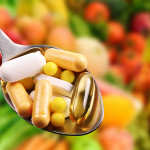By David Blyweiss, M.D., Advanced Natural Wellness
February 25, 2015
- Is sluggish blood making you feel old?
- The secret is hiding in your blood vessels
- Feel younger, more energetic and less forgetful
Did you know your heart pumps something like 1,800 gallons of blood through your veins and arteries each day? If you stretched them all end-to-end, they’d measure an incredible 60,000 miles.
This flow of blood nourishes your heart, brain, muscles, kidneys, genitals and more. So it stands to reason if you have reduced blood flow, it will impact every organ in your body.
In other words, it’s not just your cardiovascular health that’s affected by a sluggish flow of blood. It also means you get tired more easily, you become more forgetful and your sex drive slips away. Your metabolism changes, steps seem steeper and maybe your hair is turning gray.
You just… well… start feeling old! This makes it especially important to keep your blood vessels in top-notch shape.
MD Exposes the Hidden Danger to Your Eyes

When your eyesight starts to fail, it's a real problem. Suddenly you can't go to the grocery store... you can't get to the doctor if you have an emergency... you can't meet your friends for dinner…
Your "regular" doctor doesn't have time to keep up with the latest research. And the same goes for eye doctors. They go to school to learn how to fit you for glasses and contacts, but have no way of preventing the damage and loss of eyesight that threatens your freedom and independence.
Let me show you something that explains a LOT about how your eyes work.
In my FREE Special Report, I'll show you a HUGE, untapped resource for your eyes that safely and naturally restores clear, effortless eyesight.
Click here to get started...
Unfortunately, you can have poor blood flow for years without ever knowing it. There are very few outward symptoms. And the ones you do have – like fatigue, forgetfulness or a lack of interest in bedroom activities – are so general they can easily be dismissed as aging.
But if you’re suffering from these signs of decreased blood flow, there’s something you can do about it – without taking dangerous prescription drugs. You don’t have to accept that it “just happens to all of us.”
Obviously, the size of the blood vessels your heart is pumping all that blood through makes a big difference in how hard it has to work. Think of it as the difference between filling a swimming pool with a fire-truck hose or the one you’d use to water your flowers.
Clearly, the more wide open and relaxed your blood vessels are, the more freely your blood will flow throughout your body. The narrower they are, the more constricted your blood flow will be.
This narrowing can cause tearing and scarring on the inner walls of your vessels – the endothelium. Once the damage sets in, fats and cholesterol start building up and cause your blood vessels to narrow even further. This isn’t just bad for your heart. It’s bad for your entire body.
But there is good news. You see, your body naturally makes something that helps your blood vessels function like “fire-truck hoses instead of garden hoses.” It’s called nitric oxide, or NO.
When nitric oxide is plentiful, your arteries and veins are wide open. Once those vessels are open and relaxed blood flow increases to your brain, your heart, your muscles… and to every organ and cell in your body.
Are You Suffering From...
- Love handles and a pot belly
- Romance that isn't what it used to
- Forgetfulness and inattention
- Low (or no) strength and endurance
- A sex drive that's shifted into neutral...or worse
If so...you may have Mature Male Burnout. Click here to discover more about this unique condition and what you can do about it.
That means you’ll feel younger, less forgetful, and can go a whole lot farther before you get tired. Your blood pressure will drop, sex will be back on the menu and life will become exciting again.
But here’s the problem… By the time you reach age 40, your body makes about half as much NO as it did in your youth.
And as you grow older, the cells on the inner lining of your blood vessels (the endothelial cells) become thicker. This makes them less able to create nitric oxide.
In fact, some researchers consider decreased availability of nitric oxide in the endothelium as one of the earliest signs of arterial aging. So, the solution is to increase the availability of NO to boost blood flow to your heart, brain, muscles… and to all of your organs and cells.
Thankfully, I can show you exactly how you can do this – without changing your lifestyle.
Certain foods contain high levels of inorganic nitrate. When you eat these foods, this nitrate converts to nitric oxide in your body. Beetroot juice is at the top of the list… followed by kale, melon, celery, lettuce and spinach. Broccoli, ginger root and cabbage are pretty good too.
If you like these foods, I definitely recommend trying to get plenty of them in your diet. But don’t cook them in water. That removes all of the nitrates. Instead, try steaming, roasting or drinking the raw juice.
Now these foods will give you a boost, but to get the kind of sustained boost in NO levels that will actually make a difference in how you feel, you need something more powerful. That’s why I often recommend taking a nitric oxide-boosting supplement.
For example, an amino acid called citrulline naturally increases levels of the nitric oxide precursor L-arginine (which helps your body make more NO). All it takes is 1,500 mg of citrulline daily to get an NO boost.
Or, you can look for a plant-based NO enhancer that has beetroot juice as its main ingredient. These plant-based formulas vary from one manufacturer to another, which can make it hard to choose the one that gives the biggest bang for your buck. So you’ll be glad to hear that I have one of these formulas in the works right now.
It’s a combination of red beetroot extract, citrulline, arginine, melon juice and other potent NO boosters. All of these ingredients are scientifically proven to enhance your body’s natural NO production.
And once your NO production goes up, you’ll feel it from your head to your toes. In fact, it can make a real difference in how you feel and how long you live. Stay tuned to upcoming issues of Advanced Natural Wellness. I’ll send you an alert once the formula is ready.
Sources:
Lidder S, et al. “Vascular effects of dietary nitrate (as found in green leafy vegetables and beetroot) via the nitrate-nitrite-nitric oxide pathway.” Br J Clin Pharmacol. 2013 Mar;75(3):677-96.
Schwedhelm E, et al. “Pharmacokinetic and pharmacodynamic properties of oral L-citrulline and L-arginine: impact on nitric oxide metabolism.” Br J Clin Pharmacol. 2008 Jan;65(1):51-9







Looking forward to your NO enhancer. Hope it’s ready soon.